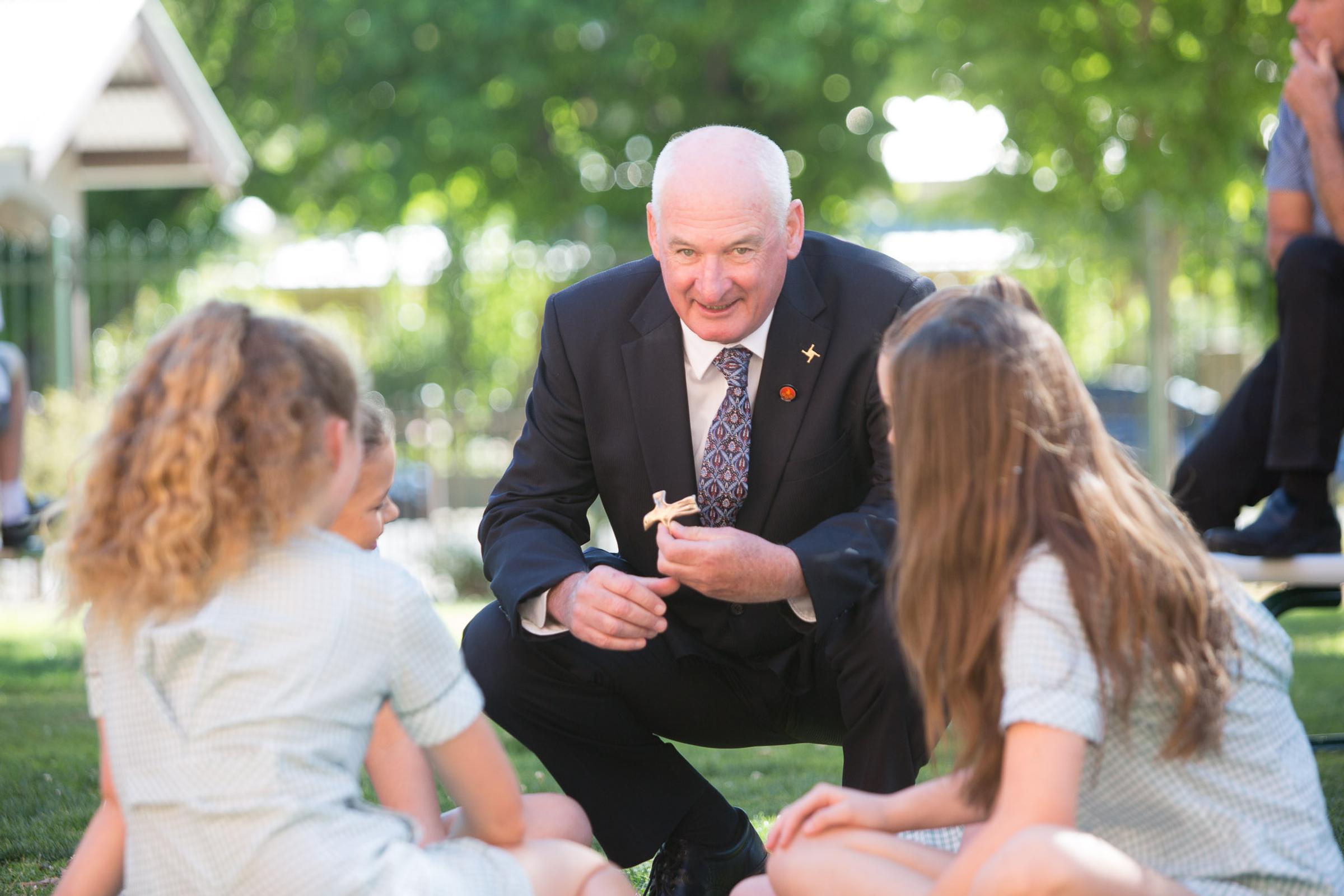Principal's Report

This week is Sabbatical Week
Sabbatical Week is the most important week of the year for staff members. It gives us an opportunity to stop and reflect on what it means to call our school a Catholic school and our role as staff members within that school.
Over the course of the week, we get to participate in a range of workshops designed to assist with our formation as educators responsible for opening the minds of the students to the Gospel message.
On Friday, Staff Spirituality Day, we are taking a short course in Catholic Social Teaching led by Dr Anna Rowlands. Dr Rowlands was due to visit Australia in 2020 and visit schools in person. Unfortunately, COVID prevented that. However, she generously offered to make a series of video presentations available to schools for use in the formation of staff, as well as a personalised introductory message for each school which addresses each school’s theme, ours being the Kildare Ministries Living Justice – Living Peace principles.
Our thanks go to both Dr Rowlands and our College Leader Catholic Identity – Mrs Kirrilee Westblade for the many hours of preparation that have made this day possible.
Coincidentally, the postponement of Sabbatical Week from earlier in the year aptly has it in the same week as Recycling Week, the conclusion of the Year 9 Personal Best Projects and the Fashion Parade. All of which have a values base founded in our Catholic Social Justice Teaching.
Thank you to everyone involved in these efforts. Our students will learn much from generously giving of themselves for others.
Is that your best work?
There would not be a single family or teacher who, at some stage in the life of their children or students, hadn’t encouraged them to “do their best”. Some children with a casual approach to life might have thought their parents’ or teachers’ encouragement to be an endorsement of their casual approach to life and so never really got themselves out of third gear, nor out of their comfort zone.
When we, as parents or teachers, tell our children to do their best, we also need to tell them that their best is never going to be the same from one period of time to the next. Everything is alive and changing all the time, so their best will sometimes be high quality and at other times will not be as good; it could depend on whether they are feeling wonderful and happy or upset and moody.
When children are doing their best, it’s usually because they enjoy what they’re doing and feel confident about it rather than doing it for a reward. They do their best because they want to do it, not because they have to do it and not because they are trying to please someone else. In the film “Forrest Gump”, the main character had no special talents, nor burst of great ideas. However, he was a contented and happy person because he did his best at everything he did. To his surprise, he was richly rewarded without expecting any reward at all. When our children don’t do their best, they are somewhat denying themselves the opportunity to be who they really are.
So, as we begin these concluding weeks of the 2021 academic year, how can we support our children to do their best?
Well, most children become what adults tell them they can become. Children take words to heart, especially words from the adults they love; they want and need to believe what their parents or teachers say about them. Through our speech and behaviour towards our children, we communicate to them the boundaries of their potential.
Sometimes, children will need feedback from their parents or teachers that might be negative in nature. However, we need to take care that the way we give the feedback is not counterproductive to our children not thinking well of themselves and accepting the need to perhaps change their behaviour. When we do give feedback, we need to focus on the behaviour not on our child’s general worth as a person.
To help children to do their best we need to show a genuine interest in them and let them know how much we care about them. We need to acknowledge what’s important to them and provide affirmation about who they are and what they’re doing. We need, on occasion, to say “well done” for nothing worth doing is ever easy; worthwhile things always take time and effort. When the need arises, we might offer to lend a hand; if our children see that we are willing to commit our time and energy to their interests, they will be more committed to see things through and be less likely to give up on themselves.
Over the next few weeks, we need to work together to make sure that our students hear the encouragement that they need to help them want to do their best work; especially as we conclude the academic year.
Our language will play a big part in our student’s level of self-belief as they try to determine what level of effort truly represents their best efforts.
Go gently everyone.
God bless.
Michael Delaney
Principal


